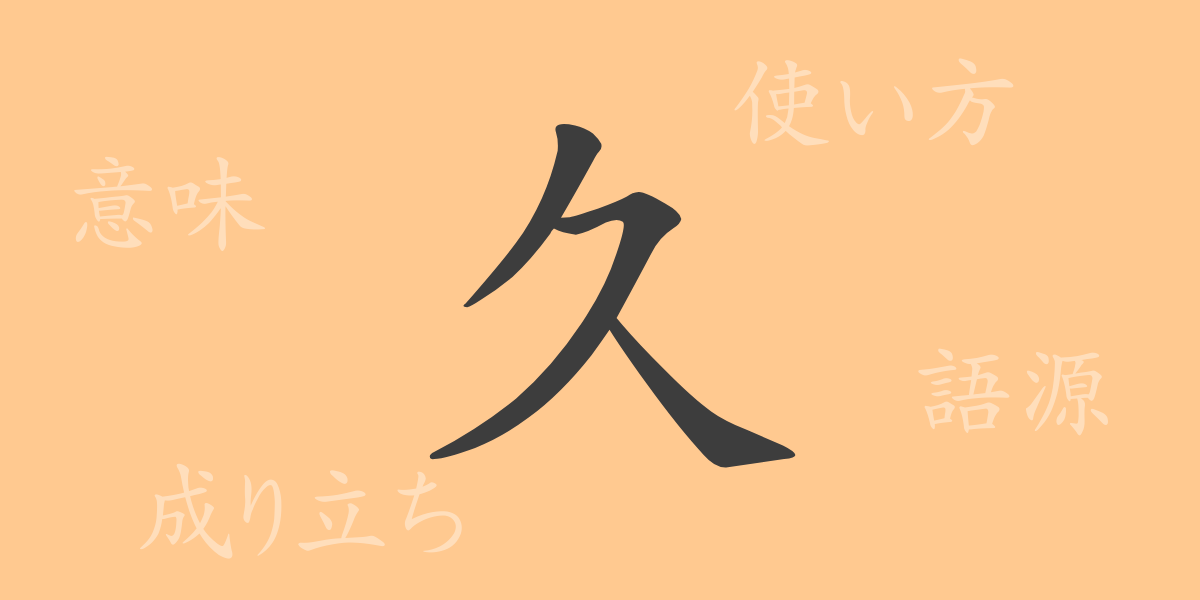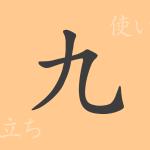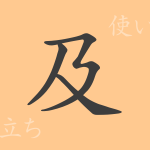In Japanese, many kanji characters have a history spanning over a thousand years, each carrying deep meanings and historical significance. The commonly used kanji “久” (きゅう, kyuu) is one such character, frequently encountered in our daily lives. This article delves into the origins, meanings, uses, and idioms related to “久” (きゅう, kyuu), revealing its charm.
Origin of 久 (語源)
The kanji “久” (きゅう, kyuu) originated in ancient China and has been in use for a long time. It evolved from a pictograph symbolizing a person sitting down, indicating the passage of a long period. After being introduced to Japan, it retained the same meaning, signifying a lengthy duration.
Meaning and Usage of 久 (きゅう, kyuu)
The primary meaning of “久” (きゅう, kyuu) is “a long time.” It is used in expressions related to the passage of time or enduring states. In everyday conversations, it appears in words like “久しい” (ひさしい, hisashii) and “久しぶり” (ひさしぶり, hisashiburi), which express the concept of reuniting or rediscovering something after a long interval.
Reading, Stroke Count, and Radical of 久 (きゅう, kyuu)
Here is the basic information about the kanji “久” (きゅう, kyuu).
- Reading: The on-yomi (Chinese reading) is “キュウ” (kyuu); the kun-yomi (Japanese reading) is “ひさ.しい” (hisashii).
- Stroke count: “久” (きゅう, kyuu) consists of 3 strokes.
- Radical: The radical is “乙” (おつ, otsu), meaning to bend or twist.
Idioms, Proverbs, and Expressions Using 久 (きゅう, kyuu)
Here are some idioms, proverbs, and expressions that include the kanji “久” (きゅう, kyuu).
- 久遠 (きゅうえん, kyuu en): Refers to a very long time, almost eternal.
- 久々 (ひさびさ, hisa bisa): Refers to something happening after a long time, meaning “in a while” or “long time no see.”
- 久しく (ひさしく, hisashiku): Means “for a long time.”
- 久方 (ひさかた, hisakata): Refers to a long period or duration.
- 久遠の志 (きゅうえんのこころざし, kyuu en no kokorozashi): Refers to a long-term aspiration or ambition.
Summary on 久 (きゅう, kyuu)
The kanji “久” (きゅう, kyuu), with its simple shape, carries rich meanings and uses. In Japanese, it is essential for expressing the passage of time or enduring conditions, and it appears in many idioms and expressions. By understanding the history and meaning behind “久” (きゅう, kyuu), we can deepen our appreciation of the language and its nuances in everyday life.

























